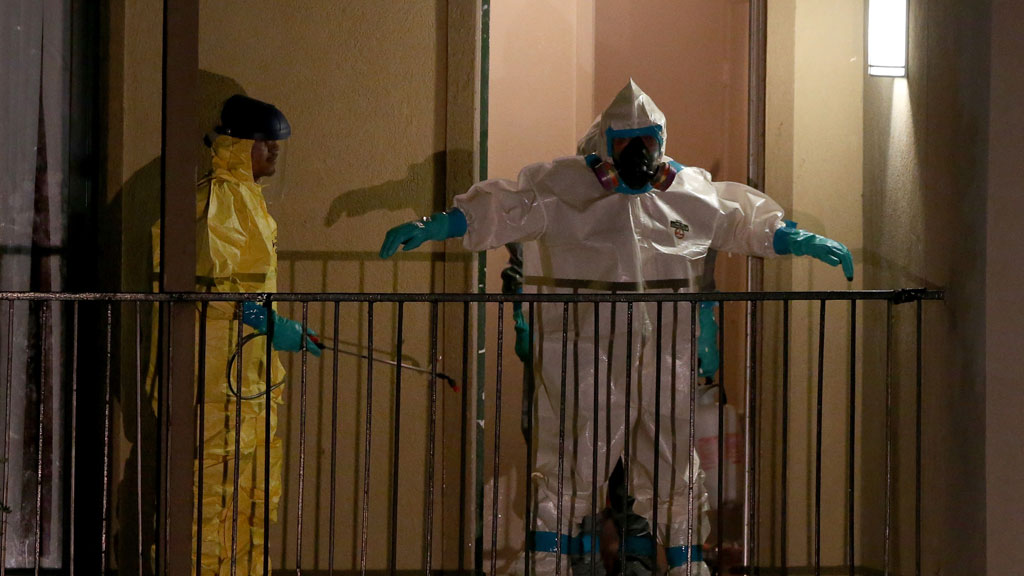US Ebola patient ‘in critical condition’
An American patient with the Ebola virus has slipped into a critical condition, raising fears that US officials are not taking the disease seriously enough.

Doctors treating Thomas Eric Duncan at a hospital in Texas have said he is now in critical condition after flying to the US from west Africa.
Mr Duncan spent six days in isolation and health officials said he lied on his health forms in Liberia, saying he had not been in contact with an Ebola patient.
Four of Mr Duncan’s flatmates sharing his apartment following his return were escorted to a safer location, although US officials have attracted criticism for moving too slowly to contain the virus – it took three days before a hazardous materials crew was sent to disinfect the apartment.
But US officials have defended their response, saying that while the government was confident of containing the virus, the Mr Duncan’s situation in Dallas had been “rocky”.
Struggling to respond?
US health officials have looked into about 100 potential cases of Ebola since the first patient with the deadly virus was identified in the United States, but no new infections have been discovered.
Health officials in Dallas have narrowed their focus to about 50 people who had direct or indirect contact with an infected Liberian visitor, including 10 at high risk who are being checked for symptoms twice daily.
A top US health official said on Saturday that handling medical waste generated by an Ebola patient proved to be one of the contingencies that American hospitals were unprepared for, saying it “took longer than we would have wished” to fix the problem.
The US Centers for Disease Control and Prevention had thought the disposal issue was resolved on 26 September, just two days before the first Ebola patient diagnosed in the US was admitted to a Dallas hospital after initially being turned away.
False alarms
Health officials have tracked down scores of possible cases around the country that proved to be false alarms, including one at Newark International Airport, when reports emerged for a man vomiting on a plane flying in from Brussels.
Passengers were kept on board for two hours after the plane landed while the aircraft was examined.

He was determined not to be contagious, and was taken to University Hospital in Newark where he is still currently under observation.
Closer to home, Britain is deemed to have a 50 per cent chance of importing the Ebola virus by 24 October, according to scientists analysing Ebola disease spread patterns and airline traffic data.
There is a 75 per cent chance the virus could reach France by that time, according to the predictions – based on airline traffic remaining at its current level.
Spreading far and wide
The deadly epidemic has killed more than 3,400 people since it began in west Africa in March and has now started to spread faster, infecting almost 7,200 people so far.
France is among countries most likely to be hit next because the worst affected countries – Guinea, Sierra Leone and Liberia – are French-speaking and have busy travel routes back.
Britain is deemed vulnerable due to Heathrow’s role as one of the world’s biggest travel hubs.
Britain and France have each treated one national who was brought home with the disease and then cured, but the scientists’ study suggests that more people may bring it to Europe not knowing they are infected.
The World Health Organization (WHO) has not placed any limits on travel, although British Airways and Emirates airlines have suspended some flights.